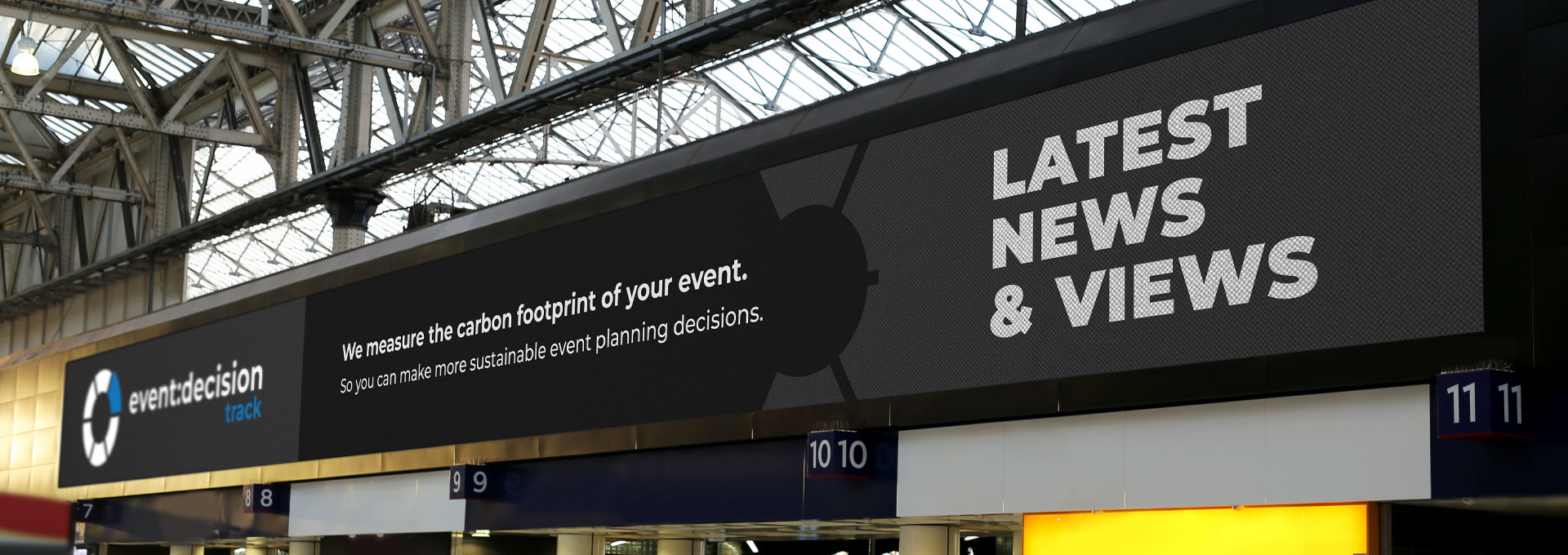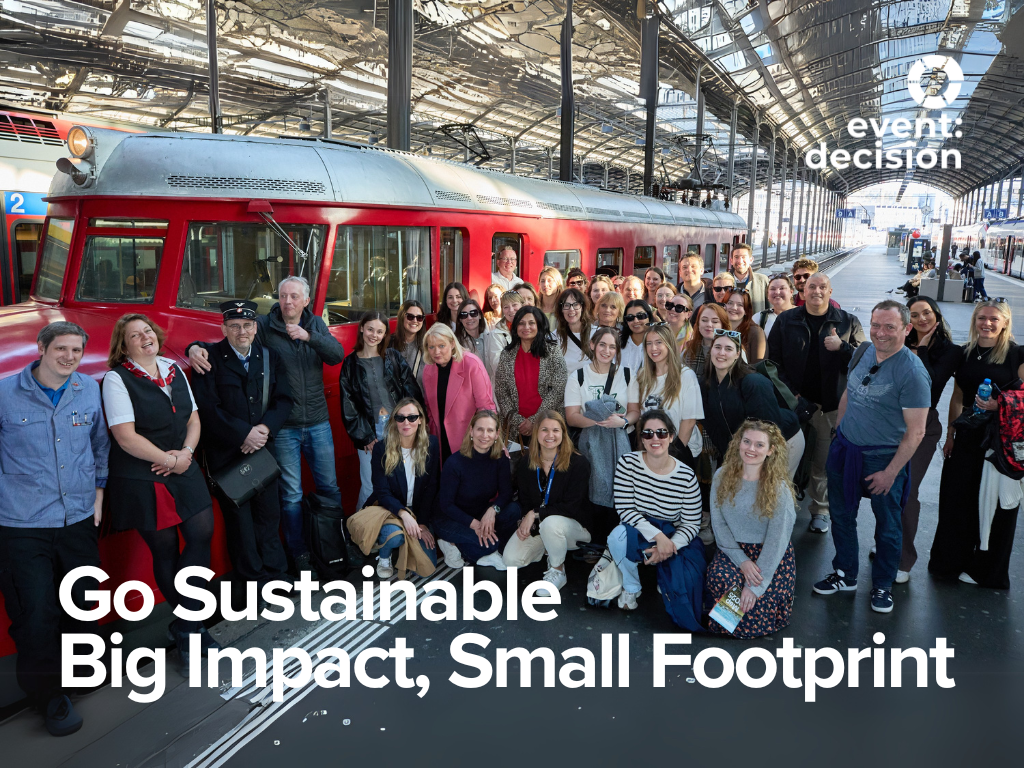Why is event greenwashing so easy?
In events, the distinction between genuinely sustainable practices and greenwashing is critical.
Why is the events industry awash with dubious gestures which don’t achieve meaningful sustainability but make everyone feel better? Here are some of the examples of greenwashing we’ve spotted, and what to do instead.
Token gestures
Token gestures, such as planting a tree for every sale or small donations to local charities, can be thought of as easy ways to claim ‘sustainability’. However, they’re superficial. They may create a feel-good factor but they simply don’t address the deeper environmental impact of events. For example, while planting trees is undoubtedly a good thing for many reasons, it likely won’t compensate directly for the extensive carbon emissions or waste generated by many large events.
The offsetting con
Carbon offsetting is a strategy frequently employed by event organisers, investing in environmental projects to ‘balance out’ their carbon footprint. However, this can be misleading or even harmful. Continuation of harmful practices, like excessive energy use or extensive travel, followed by simply offsetting these emissions, just doesn’t equate to genuine sustainability. It’s akin to a diet where you eat junk food all week and eat a salad on Sunday, hoping it balances out. There’s also evidence of environmentally detrimental projects in the carbon offsetting industry, meaning you may not actually be achieving what you think you’re paying for.
Selective reporting and misleading metrics
Selective reporting, such as boasting about banning single-use plastics but remaining silent on other environmental impacts, is a red flag. An event claiming sustainability while facilitating a thousand business-class long-haul flights is an example of a very skewed portrayal. Selective disclosure creates a distorted image of an event’s true environmental impact.
Incongruous sponsorships
Partnering with sponsors whose values contradict the event’s sustainability goals is another form of greenwashing. On a larger scale, World Rugby’s partnership with Total Energy or British Cycling’s with Shell both raise questions. Alliances like these can undermine the host, and the event’s, credibility, suggesting financial goals have been prioritised over environmental values (but the two don’t have to be mutually exclusive, as we have argued before).
The transparency gap
A lack of transparency is a significant issue in the event industry. Organisers often fail to provide clear information about how they are mitigating environmental impacts or how participants can contribute to their efforts. This opacity hinders attendees’ ability to make informed decisions and participate in sustainability efforts.
How to move to true sustainability
To move beyond greenwashing, event organisers must embrace a holistic approach to sustainability. This starts with measurement. As an event organiser, if you don’t know where your starting point is, how can you move forward to a move sustainable event? Anything else is just guesswork.
A UK industry report by venue Manchester Central claims that “78% thought they had become more sustainable over the last 12 months”. Commendable in itself, but can you imagine any other industry where the metrics are not backed with any proof?
Genuine sustainability shouldn’t involve any of these superficial measures but rethinking the entire event lifecycle — from planning to execution and through to post-event activities. Genuine sustainability includes reducing travel emissions, minimising waste, using sustainable materials, and ensuring that every aspect of the event aligns with your environmental values. Transparency and honest communication with attendees is crucial in this process. By adopting these practices, events can become powerful platforms for promoting and achieving real sustainability, shunning greenwashing and creating a positive impact that extends far beyond the event itself.
If you would like to find out more about how we could work with you to achieve all your event measurement goals in 2024, get in touch.








